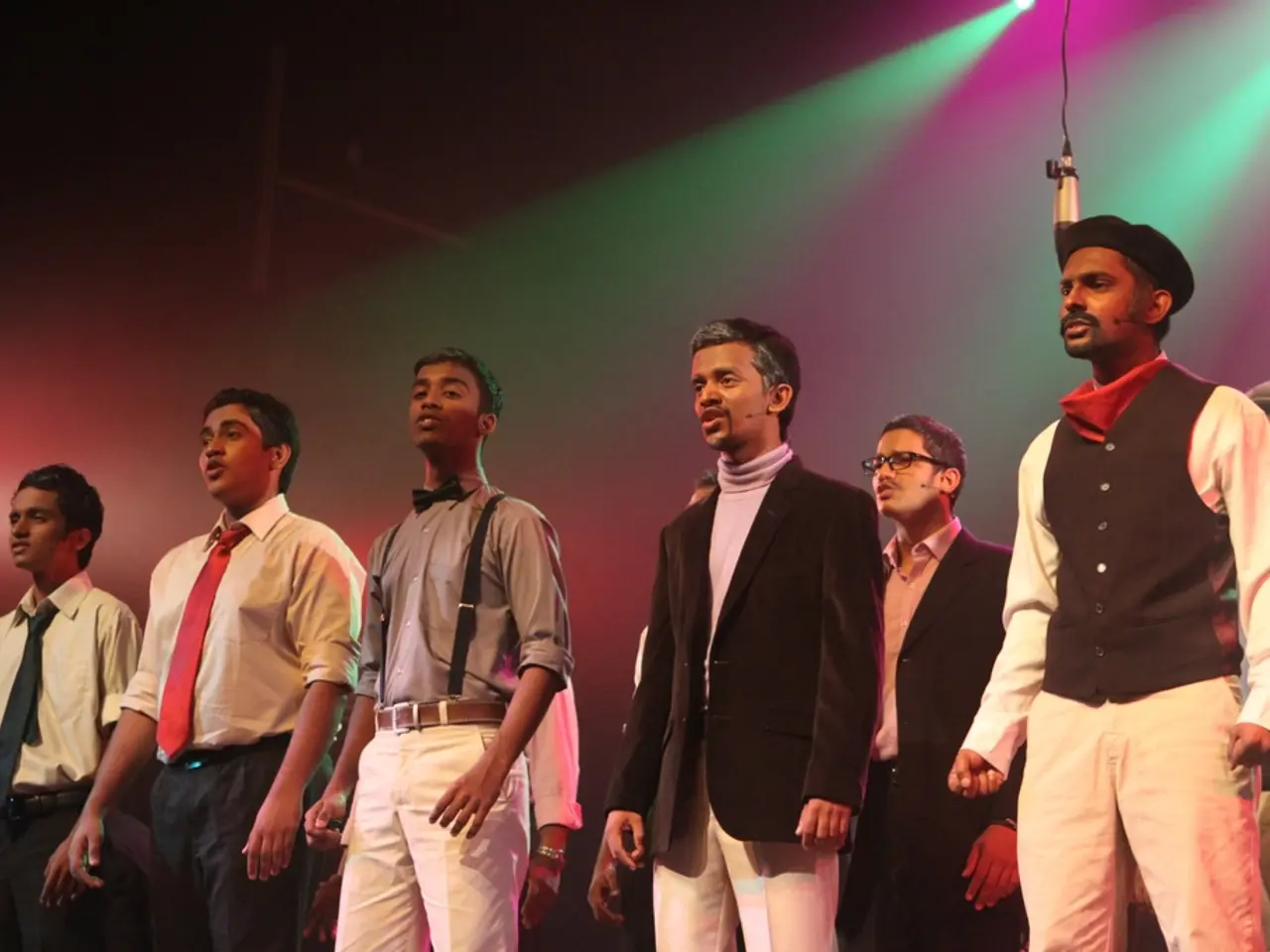Theater director Claus Peymann, known for his politically charged productions, has passed away.
Claus Peymann, a seminal figure in German and Austrian theater, passed away on July 16, 2025, at the age of 88. Known for his bold artistic choices and often controversial, left-leaning politics, Peymann left an indelible mark on the world of theater.
Born on June 7, 1937, in Bremen, Peymann studied German literature and theater at the University of Hamburg, where he also ran a student theater studio. His career began in 1966 as chief director at the Theater am Turm (TAT) in Frankfurt, where he introduced groundbreaking works by Peter Handke and Gerlind Reinshagen.
In 1971, Peymann co-founded the Schaubühne at Hallesches Ufer in Berlin, directing the premiere of Handke’s "Ride Across Lake Constance." His tenure at the Württemberg State Theaters in Stuttgart (1974–1979) was marked by innovative stagings of classics and controversy, most notably in 1977 when he collected donations for the dental treatment of imprisoned Baader-Meinhof (Red Army Faction) members, leading to his departure from Stuttgart.
Peymann next led the Schauspielhaus Bochum, transforming it into one of Germany’s leading theaters. His tenure as director of the Burgtheater in Vienna (1986–1999) solidified his reputation, and he continued to premiere Thomas Bernhard’s provocative plays, a collaboration that became legendary for its artistic daring and public notoriety. Concluding his career, Peymann served as Intendant of the Berliner Ensemble.
Peymann's career was punctuated by public controversies, most notably his support for the Baader-Meinhof prisoners, which led to his departure from Stuttgart, and his collaborations with Bernhard, which often provoked outrage among conservative circles.
Peymann was also known for his inventive productions of German classics by Schiller, Kleist, and Goethe, which often featured contemporary political commentary. He worked with various authors, including Thomas Bernhard, Thomas Brasch, Botho Strauss, Peter Handke, George Tabori, and Elfriede Jelinek.
Peymann's political engagement often sparked debate, such as his support for US director Robert Wilson and pop star Herbert Grönemeyer, and his solidarity with Handke, who was criticized for his sympathy towards Serbia. Despite his controversies, Peymann was a founding member of the Berliner Schaubühne and a long-time head of the Berliner Ensemble.
In his later years, Peymann continued to speak out on cultural policy, critically intervening in what he saw as the failed cultural policy of Berlin. He even offered former RAF terrorist Christian Klar a traineeship at the Berliner Ensemble. After stepping down as director of the Berliner Ensemble, Peymann returned to his old stomping grounds and directed "King Lear" at Stuttgart, featuring Martin Schwab in the title role.
Peymann considered theater-making to be a public activity and believed that a theater director should speak out. His legacy lives on, not only in the theatrical innovations and collaborations with leading playwrights but also in his uncompromising political stance and willingness to provoke public debate through art.
- Claus Peymann's works were often discussed on social media, especially his controversial, left-leaning politics.
- Peymann's influence extended beyond German and Austrian theater, reaching entertainment avenues like movies and TV.
- He was a source of inspiration for celebrities who appreciated his bold artistic choices and political stance.
- Peymann's career encouraged many to seek knowledge in education-and-self-development and personal-growth fields, particularly in theater studies.
- The policies and legislation surrounding arts funding in Europe were impacted by Peymann's public appearances and advocacy.
- Among pop-culture discussions, Peymann's name frequently came up, especially in relation to the sci-fi-and-fantasy genre, given his collaborations with playwrights like Thomas Bernhard and George Tabori.
- Peymann's political engagement in policy-and-legislation also extended to crime-and-justice issues, such as his offer of a traineeship to former RAF terrorist Christian Klar.
- Sports-betting platforms often lacked the intellectual depth that Peymann's works offered, a stark contrast to his profound productions.
- European leagues, including football (soccer), baseball, hockey, golf, and basketball, missed the opportunity to host Peymann as a guest director, as he was more involved in theater-making.
- Auto-racing, tennis, and mixed-martial-arts events could have benefited from Peymann's sports-analysis perspective, given his understanding of competition and performance.
- Peymann's passing left a void in the premier-league of German and Austrian theater, parallel to the loss felt by fans of the NBA, NHL, MLB, or European Grand Prix racing.
- Theater directors who succeeded Peymann in various stages of his career have been influenced by his uncompromising approach to political commentary through art.
- Peymann's contribution to the world of books and literature was evident in his collaborations with numerous authors, including Thomas Bernhard and Elfriede Jelinek.
- As readers delve into books about theater, politics, and personal growth, they will find inspiring accounts of Claus Peymann and his groundbreaking career.
- Scholars of policy-and-legislation, politics, and pop-culture will continue to analyze Peymann's impact on various fields, as his influence reached far beyond the world of theater.
- Peymann's legacy will inspire future theater directors to take political stands and use their platform for public debate, much like he did during his tenure.
- Despite reports of controversy in newspapers and general-news articles, Peymann's commitment to education-and-self-development, personal-growth, and social-media discussions will ensure his name remains relevant in the annals of theater history.




